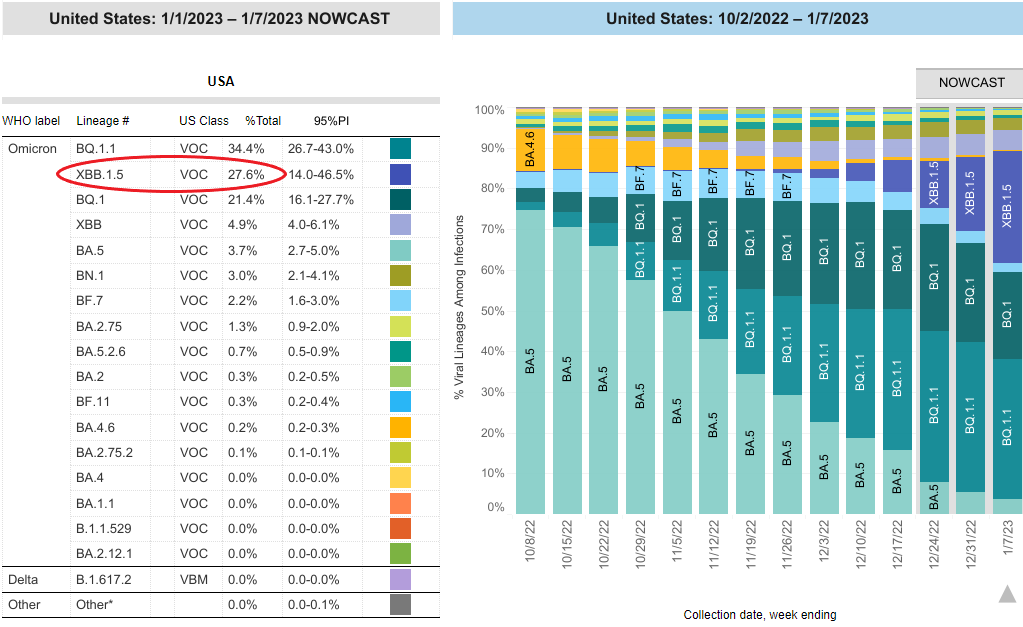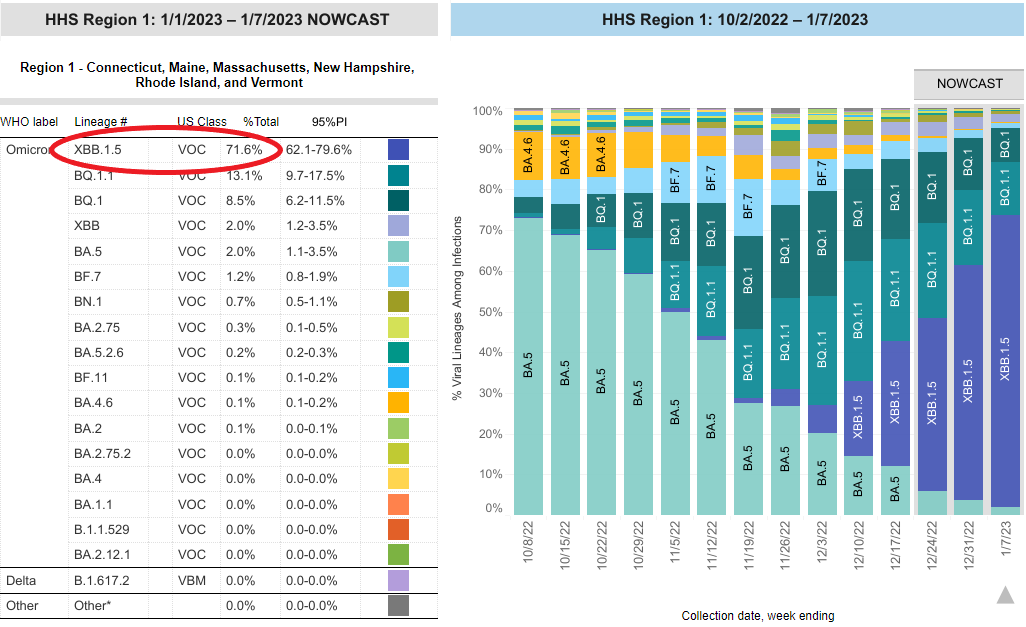What's kraken? 4 things to know about the new XBB.1.5 COVID variant

A new COVID-19 variant is causing concern among health care professionals.
The XBB.1.5 variant, nicknamed “kraken,” is showing a rapid rise in hospitalization rates in certain parts of the United States.
What to know about the kraken variant
1. The kraken variant appears to evolve differently from previous variants.
The kraken variant is a descendent of the XBB variant, nicknamed gryphon.
Gryphon caused large outbreaks in Asia this past fall. It was the first documented example of a SARS-CoV-2 variant that evolved from two viruses combining genetic information.
2. Hospitalization rates are rising rapidly in areas where the kraken variant is spreading.
Regions of the United States affected early by kraken are experiencing a dramatic acceleration of hospital admissions. In persons aged 70 and above, rates are like those seen with the original COVID-19 virus and the omicron variant.
“What we’re seeing now in hospitalizations is one of the more rapid rises in hospitalization rates that we’ve seen in the pandemic overall,” says James Lawler, MD, Nebraska Medicine infectious diseases expert. “The overall hospitalization rate is rising across all ages, but most predominately in those who are most vulnerable and over age 70.”
3. The kraken variant’s ability to spread is significantly higher than previous variants.
While the kraken variant is relatively new, it is more easily transmitted from person to person than gryphon. It’s also much more transmissible than the variants of SARS-CoV-2 that we encountered in 2020 and 2021.
As of last week’s data, over 27% of new infections in the United States are thought to be kraken. The proportion of the kraken variant is doubling weekly in areas where it is spreading.

The kraken variant appears to be more resistant to antibodies induced by prior infection and vaccines than previous variants. That means this variant is better at evading prior immunity and vaccination.
4. The kraken variant will likely be spreading in the Midwest within weeks.
Eastern states such as Massachusetts, Connecticut, Virginia and North Carolina are currently experiencing a rapid rise in hospital admission rates. Texas and California are starting to see an uptick.
The variant is spreading and will inevitably impact the Midwest.

Keep yourself and those you love protected
While it’s understandable that most are weary of dealing with COVID-19 concerns, it’s not the time to let down our guard.
The best way to prevent infection and hospitalization is to keep practicing proven public health strategies. Healthy practices, including staying up-to-date with your vaccinations and wearing a mask in crowded indoor areas, protect you, your family and the community.
“The reality is that we are less protected now than we were previously in terms of vaccination,” says Dr. Lawler. “Many people have not received a vaccine dose in over a year. If you haven’t been vaccinated recently or haven’t received the bivalent vaccine, you are not well protected. Even with prior infection within the last six months, you are most likely unprotected against the XBB.1.5 variant.”
Vaccination and booster rates need to increase in our community and the nation. Evidence shows that those who are up-to-date with their COVID-19 vaccinations will continue to be protected against severe disease, hospitalization, and death – even with the latest variants.
How to stay protected
- Get vaccinated
- Wear a mask in public places
- Avoid close contact with others, especially if they have symptoms
- Wash your hands often
- Get tested if you have symptoms
- Stay home if you're sick or have symptoms of COVID-19
Watch Dr. Lawler's Jan. 4 COVID-19 update
Stay informed: View all of Dr. Lawler's COVID-19 updates as they're published.





